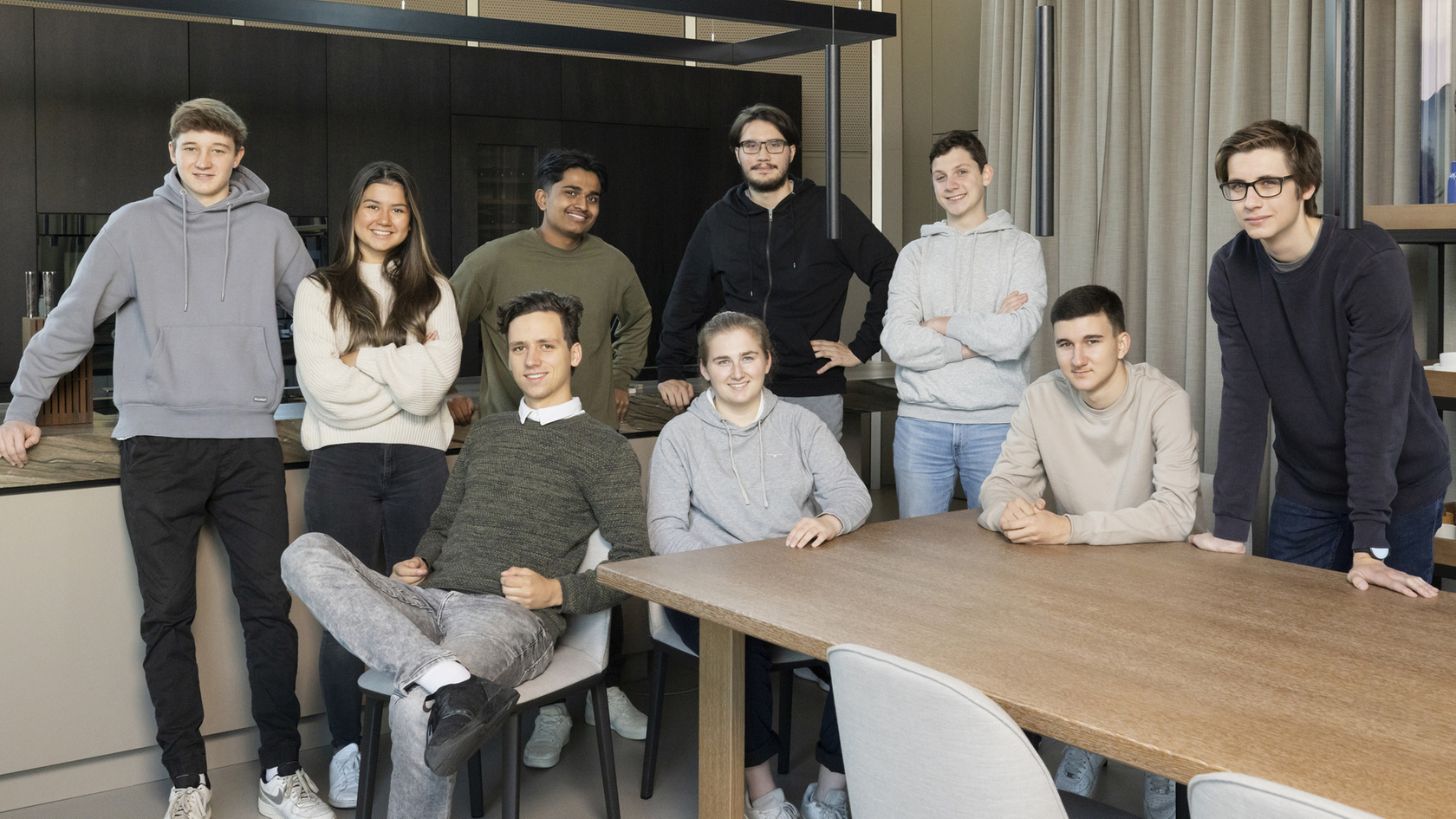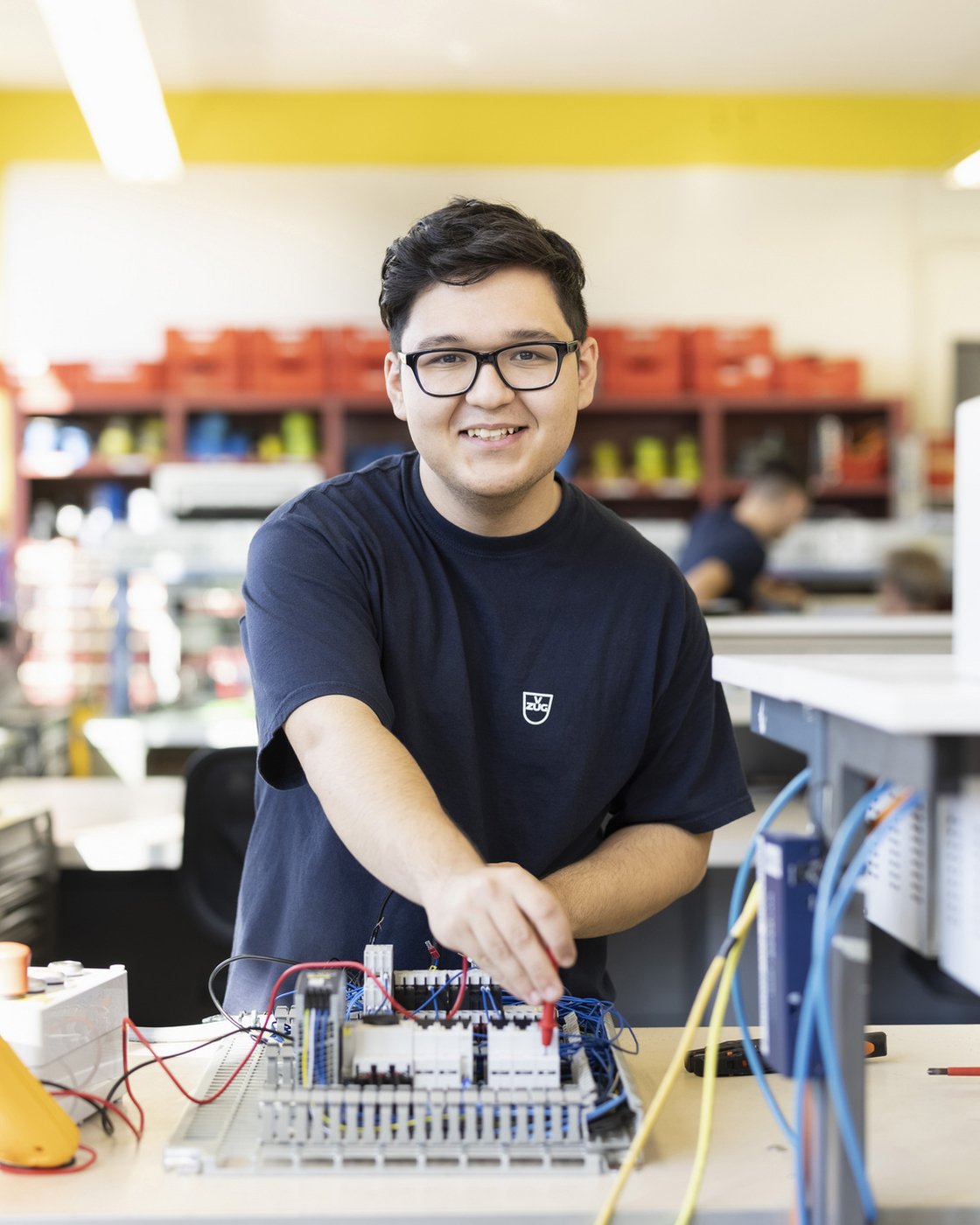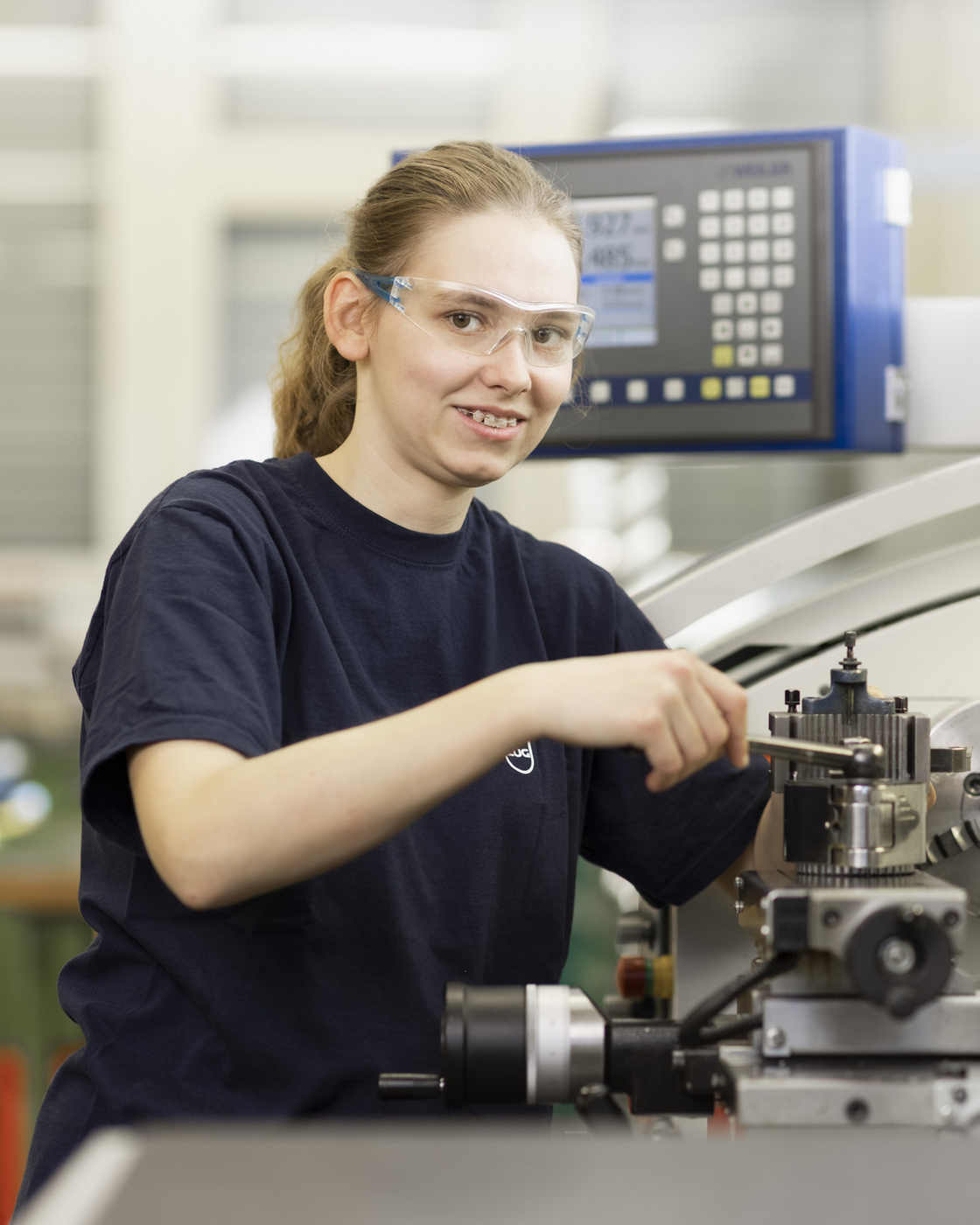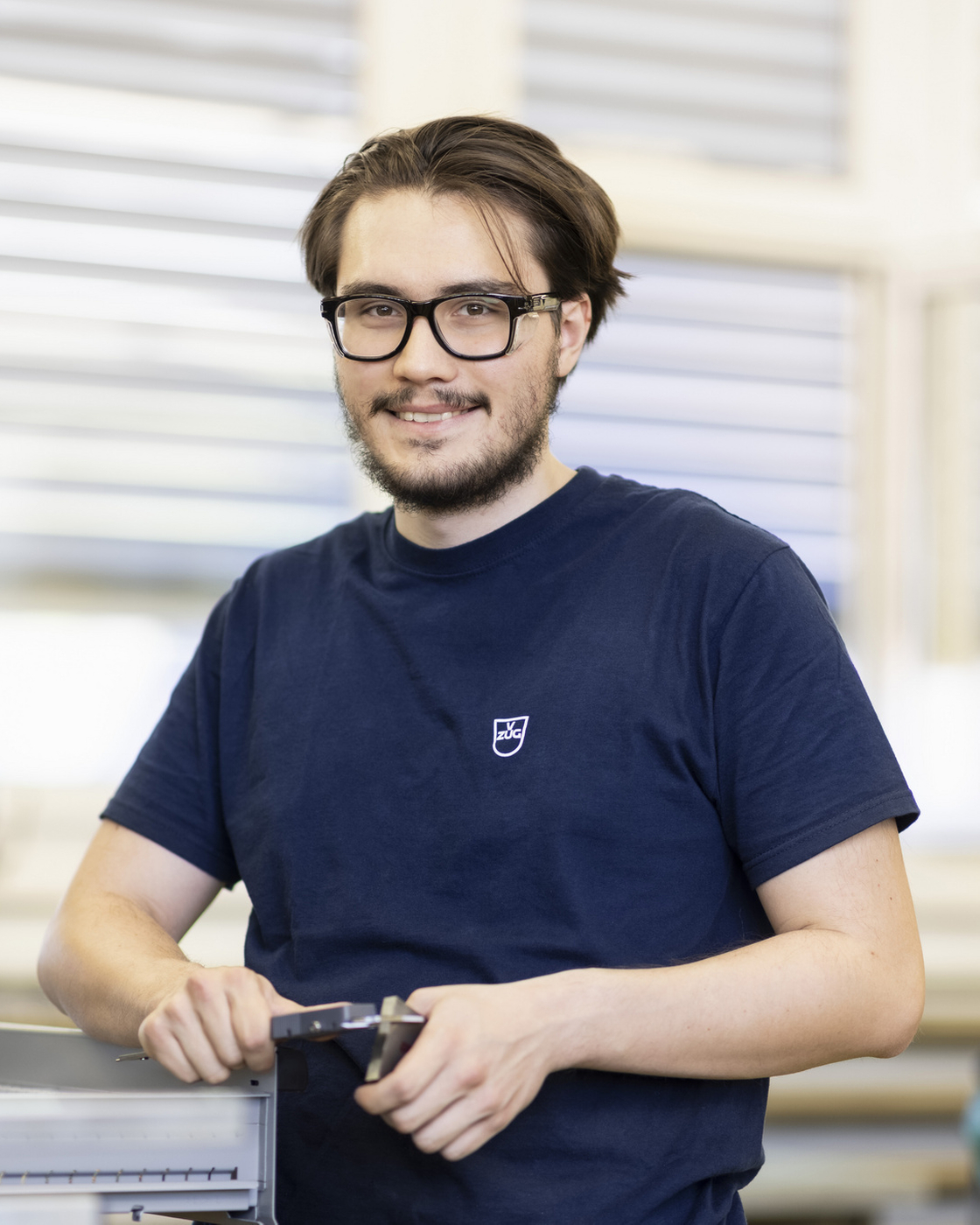By embarking on our training course, you will have the opportunity to discover every aspect of the profession and put your knowledge into practice in various departments. The Development division is where you will work with experts on products that are not yet on the market, and you can then put the appliances through their paces in the lab. A large part of the work as a designer involves CAD modelling (using a PC-based drawing programme). You will learn everything there is to know about this during the first year of your apprenticeship so that you are in a position to work with it independently going forward. When an order for a component comes in, for example, your first move is to sketch out your thoughts. You then brainstorm your ideas with others until you have a solution that ticks all the boxes. The next step is to model your own component in CAD and produce a technical drawing of it, which the polytechnicians can use to bring your design to life. Once manufactured, the component is used and tested in V-ZUG appliances. If it works perfectly, it may well be that a component you have drawn is built into future household appliances.
Are you interested in technical devices and how they work? Would you like to understand technical drawings and be able to design them yourself? Do you enjoy developing new ideas and coming up with designs for interesting challenges? Here at V-ZUG Ltd, we provide training that will take your career into the future.
Training
The four-year training programme is divided into a basic training stage and an advanced training stage with a focus on the development of parts and the manufacture of production equipment. Throughout the apprenticeship period, you will have the opportunity to consolidate what you have learned in 13 different departments, all while attending compulsory vocational school classes up to twice a week. You may also work towards your vocational school diploma (Berufsmatura) in parallel to your apprenticeship, after consulting V-ZUG Ltd.
Requirements
Basic level of education (Volksschule; upper stage of secondary school)
Keen interest in technical relationships and mechanics
Understanding of abstract relationships
Strong capacity for visual thinking
Meticulous approach to tasks
Passion for working with computers
Team player
Good grades in geometry, mathematics and physics
Development opportunities
Courses Academy and from Swissmechanic/VMTW
Professional examination (BP) Resulting in a federal vocational diploma as an automation specialist, process specialist, technical business administrator, or similar
Advanced technical examination (HFP) Industrial specialist
Advanced vocational school (HF) Diploma in Mechanical Engineering (specialising in construction technology); Diploma in Electrical Engineering
University of applied sciences Bachelor of Science (FH) in Mechanical Engineering, Electrical Engineering or Mechatronics











